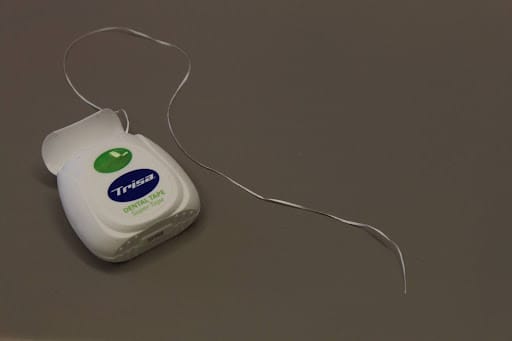 Invisalign treatment, just like any orthodontic service, can take months, and sometimes years, to complete. If you’re nearing the end of your journey towards a straighter smile and are wondering what’s next, you might not be thrilled about the answer. However, it’s the reality of every patient who has undergone orthodontic treatment, and it’s wearing a retainer. Read on to learn why you need to wear a retainer after finishing your Invisalign treatment and for how long. (more…)
Invisalign treatment, just like any orthodontic service, can take months, and sometimes years, to complete. If you’re nearing the end of your journey towards a straighter smile and are wondering what’s next, you might not be thrilled about the answer. However, it’s the reality of every patient who has undergone orthodontic treatment, and it’s wearing a retainer. Read on to learn why you need to wear a retainer after finishing your Invisalign treatment and for how long. (more…)
Snow Family Dental
Your Invisalign Treatment is Over. Do You Have to Wear a Retainer Now?
March 2, 2025
Creating a Healthy Smile for Life | Dentist Frankfort
March 1, 2024

Good oral health is an important part of overall health and wellbeing. As a parent, it’s important to instill good oral health habits in your children from a young age. Teaching children good oral health habits can help them maintain a healthy mouth and smile throughout their lives.
(more…)Understanding the Relationship Between Acid Levels and Tooth Decay | Dentist in 60432
February 15, 2024

Acid levels in the mouth can have a major impact on the likelihood of developing tooth decay. When the acid levels in the mouth are too high, it can cause the enamel of the teeth to become weakened, leading to the development of cavities. When the acid levels in the mouth are too low, it can lead to tooth demineralization, creating the perfect environment for bacteria to thrive. Understanding the relationship between acid levels and tooth decay can help you take steps to prevent the condition.
(more…)Daily Flossing | 60432 Dentist
February 1, 2024

We’ve all been told at least once in our life that flossing daily is crucial. Here are four reasons why flossing may be beneficial for your oral health routine:
(more…)Fruit Juice & Your Teeth: A Message From Your Dentist | Dentist in 60432
January 15, 2024

Don’t be fooled by the label “100 percent fruit juice.” Drinks advertised in this way might seem like a healthy choice, but these drinks may be doing more harm than good. In fact, fruit juices contain sugar that can lead to tooth decay. The American Academy of Pediatrics (AAP) recently reevaluated their recommendations for allowing small children to consume fruit juice. Here’s what you need to know about the new guidelines.
(more…)6 Harmful Habits That Affect Your Teeth | 60432 Dentist
January 1, 2024

Nearly everyone has at least one habit that they wish they could break. Did you know that some of them can affect your oral health? Here are a few common habits and tips for how to break them.
(more…)Maintaining Your Oral Health During Illness | Family Dentist Frankfort
December 15, 2023

Sniffling, sneezing, and coughing. Being sick can make it more difficult to keep up with your daily routine. Don’t let your cold or flu become an excuse for overlooking your oral hygiene. In fact, when you’re sick it is essential that you continue to stick to your regular brushing and flossing routine. Here are a few tips to keep you on track and on your way to getting better.
(more…)The Connection Between Diet and Tooth Decay: Strengthening Your Teeth Through Good Nutrition | Dentist Frankfort IL
December 1, 2023

It’s no surprise that what we eat and drink has a direct effect on our health and well-being. What many people don’t realize is that the food and beverages that we consume can also have a major impact on the health of our teeth. In fact, the connection between diet and tooth decay is so strong that it’s estimated that about 50% of all cavities are caused by diet.
(more…)Revolutionizing Dental Care: How Dental Technology is Changing the Way We Treat Tooth Decay | Frankfort IL Dentist
November 15, 2023

In today’s world, dental technology has become an integral part of treating tooth decay. Dental technology has revolutionized the way dentists diagnose and treat problems, providing faster and more accurate results than ever before. This technology has made it easier for dentists to provide better care for their patients, while also reducing the amount of time it takes to diagnose and treat tooth decay.
(more…)Beyond Wrinkles: The Surprising Benefits of Botox in Dentistry | Frankfort IL Dentist
November 1, 2023

Botox, also known as Botulinum toxin, is commonly known as a cosmetic treatment for wrinkles and fine lines on the face. However, in recent years, it has also found its way into the field of dentistry. Botox is a safe and effective treatment for a range of dental issues, including temporomandibular joint (TMJ) disorders, bruxism, and other facial pain conditions.
The use of Botox in dentistry has become increasingly popular due to its ability to relax muscles and reduce pain. Botox injections are quick and simple, and their effects can last for several months. Many patients have reported significant improvement in their symptoms after receiving Botox treatment.
One of the most common uses of Botox in dentistry is for the treatment of TMJ disorders. TMJ disorders can be caused by a variety of factors, including stress, teeth grinding, and trauma to the jaw. Botox injections can help to relax the muscles that are causing pain and discomfort, reducing the severity of symptoms and improving the patient’s quality of life.
Another common use of Botox in dentistry is for bruxism, also known as teeth grinding. Bruxism can cause a range of dental issues, including worn teeth, jaw pain, and headaches. Botox injections can help to relax the muscles that are responsible for teeth grinding, reducing the frequency and severity of the condition.
Botox can also be used to treat other facial pain conditions, such as trigeminal neuralgia and chronic migraines. In these cases, Botox injections are used to block the release of certain chemicals that cause pain and inflammation.
Overall, Botox is a safe and effective treatment option for a range of dental issues. However, it is important to work with a qualified and experienced dentist who has undergone specialized training in the use of Botox in dentistry. Dentists who use Botox in their practice should have a thorough understanding of facial anatomy and be able to identify the appropriate injection sites to achieve the desired results.
In addition, patients should be aware that Botox is a temporary solution and will need to be repeated every few months to maintain its effects. Patients should also be aware of the potential side effects of Botox, which can include bruising, swelling, and muscle weakness.
In conclusion, Botox is a safe and effective treatment option for a range of dental issues, including TMJ disorders, bruxism, and other facial pain conditions. It is important to work with a qualified and experienced dentist in Frankfort who has undergone specialized training in the use of Botox in dentistry to ensure the best possible results. With proper care and attention, patients can enjoy improved dental health and a better quality of life thanks to Botox. For more information, please contact Snow Family Dental.
